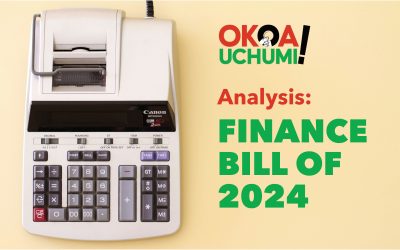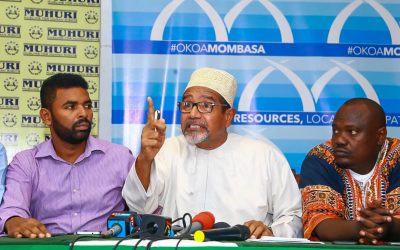Statement by Okoa Uchumi Debt Campaign
NAIROBI — Despite Kenya being in a debt distress, the government continues to gobble up more loans than the economy can repay. According to the data from the Central Bank of Kenya and National Treasury, the country’s public debt has risen to sh.7.1 trillion from a flat Ksh.6 trillion at the start of 2020. The roughly Ksh. 1 trillion addition in the public debt registry is largely attributable to an unrestrained borrowing following the advent of COVID-19 pandemic in the country.
Whereas the constitution provides principles for public finance management to safeguard public resources, we note that the development priorities of the present administration have moved the country from a stable debt position to a debt crisis in less than 7 years.
Even with the strained economy, the Jubilee government has continued to borrow, a move that is putting the country in a situation it cannot repay what it owes. Its in this regard that the Okoa Uchumi virtual Meeting: “Building a CSO Agenda for Political Accountability in Public Debt Management,” held on Friday, October 23, 2020, has resolved as follows:
- That the government should take advantage of available debt relief options and advocate for debt relief especially from World Bank and commercial debts to cushion the economy from the shocks of COVID-19.
- That the government must enhance fiscal consolidation by reviewing tax breaks, exemptions and incentives given to foreign companies which may be used for tax avoidance.
- That the government should move with speed and merge/scrap/privatize resource-consuming parastatals and state corporations to reduce waste and duplication.
- That the Parliament should get out of its addiction to big budgets/budget deficits driven by perverse incentives around CDF and perform their duty of oversight over the Executive’s high borrowing independently.
- That the government should stop implementing expensive projects that are driving debt, yet no benefits are trickling to common citizens at the grassroot level. For example, the impacts of the inland terminus and SGR on residents and businesses of Mombasa has caused a loss of livelihoods.
- That the principle of public participation is a key underlying pillar of the constitution, therefore, citizens must be involved in public debt management and their views heard in projects that are financed by loan proceeds.
- We call on the civil society actors to immediately work with the relevant authorities including the auditor general’s office to institute a social evaluation processes to assess the viability of debt financed projects in the country and make recommendations as a basis for continued funding.
For Okoa Uchumi’s full list of demands, please click here.
For more information, please contact:
Christine Akinyi christine.akinyi@tisa.or.ke
Derick Ngaira derick.ngaira@tisa.or.ke
About Okoa Uchumi
The Okoa Uchumi Debt Campaign is a civil society platform committed towards working with stakeholders to redress Kenya’s public debt crisis. The coalition seeks to push for political accountability and bolster constitutional safeguards in public debt management to debt sustainability through a balanced and equitable budget.
The statement is supported by:
- Crawn Trust Kenya,
- Diakonia Sweden,
- Diocese of Lodwar,
- Institute for Public Finance Kenya,
- International Budget Partnership Kenya,
- Interreligious Council Kenya,
- Kenya Human Rights Commission,
- National Taxpayers Association Kenya,
- Okoa Mombasa,
- Katiba Institute
- Oxfam Kenya,
- PAWA 254,
- The Institute for Social Accountability,
- Transparency International Kenya,
- Youth Agenda.


